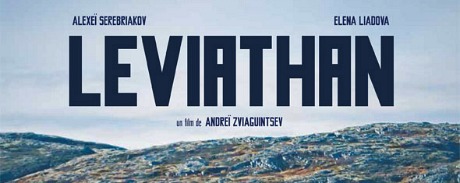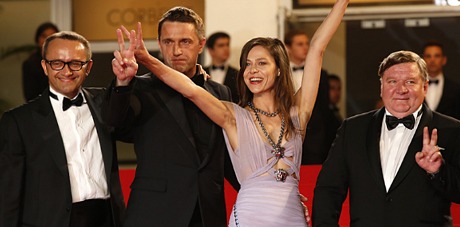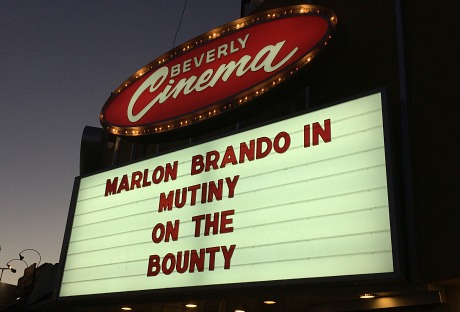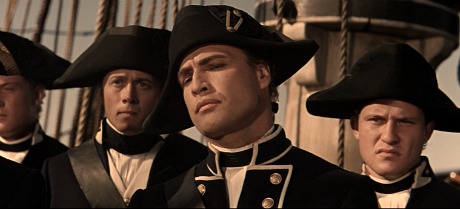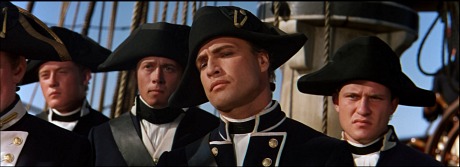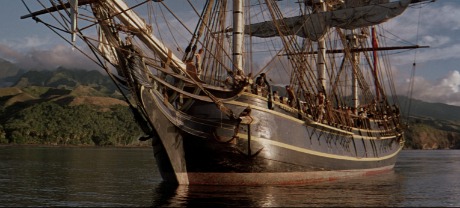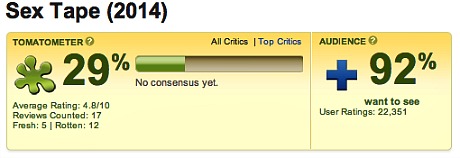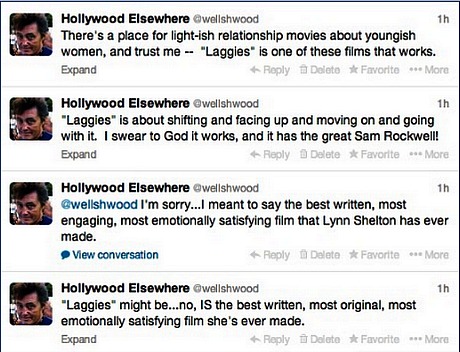Here’s a portion of my 1.22 Sundance Film Festival review of Charlie McDowell and Justin Lader‘s The One I Love: “Mark Duplass and Elizabeth Moss play Ethan and Sophie, a couple who visit a kind of therapeutic country retreat in an effort to heal their damaged relationship (largely due to a brief episode of infidelity on Ethan’s part). Early on something happens that either (a) re-acquaints the couple with alternate, fantasy-projection, somewhat more attractive versions of themselves or (b) reminds them of the people they presented themselves as when they first met.
“We all put on our best sexy/attractive face when we first meet and go out with someone we like and want to be with. Down the road the reality of who we really are eventually comes out, of course. The therapy that Ethan and Sophie experience at the retreat is surreal, but the film is basically saying that when we stop presenting our sexy/giving/open-hearted selves (a process that ends because it’s so exhausting) and come down to earth, we inevitably disappoint our partners. The One I Love is about re-connecting with the person we fell in love with initially and/or ditching the one we’ve become disappointed with since.
“McDowell, Lader, producer Mel Eslyn and executive producer Duplass should be proud and satisfied for at least delivering an entertaining comedy that is clearly unusual and at least semi-thoughtful (even if they don’t quite bring it home). The One I Love is a great date flick — no question. Definitely something to kick around with your significant other and friend over drinks. It should sell.”


